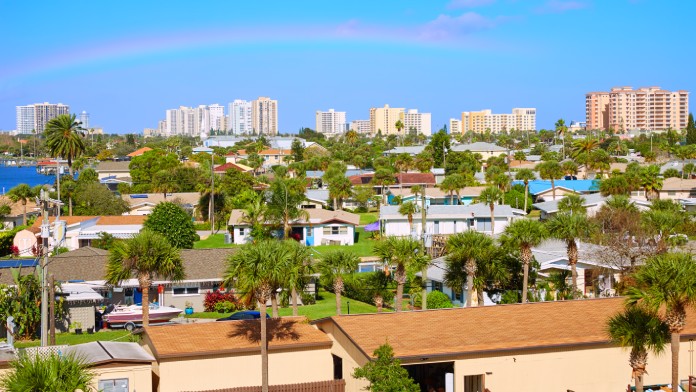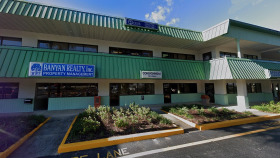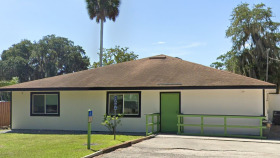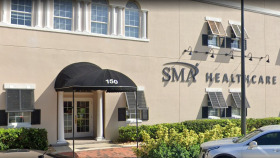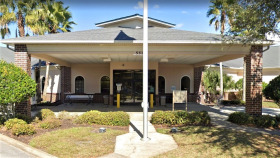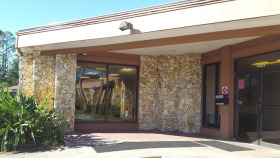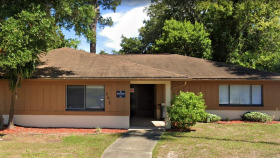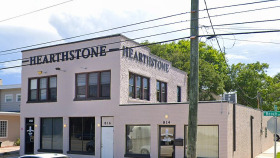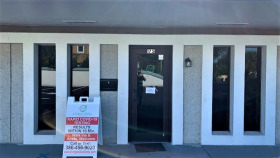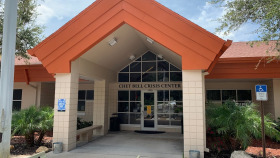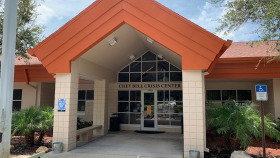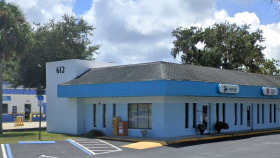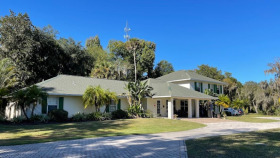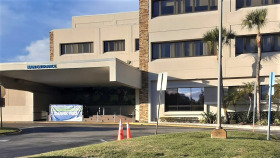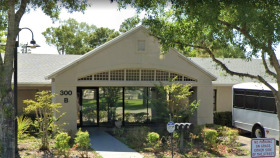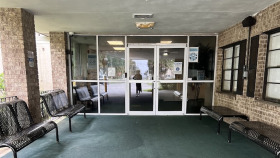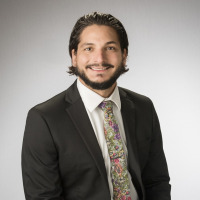Substance Abuse and Overdose Statistics from Port Orange, FL
Volusia County statistics from the past decade demonstrate the need for continued attention to the treatment and prevention efforts concerning substance use. Some statistics from the 2022 Community Heath Assessment by Flagler and Volusia County include:1
From 2013 to 2019, Volusia County saw a 252.4% increase in deaths involving fentanyl.
Deaths involving methamphetamine increased by 24.6% from 2013 to 2019 in Volusia County.
Nearly 86,000 people received prescriptions for opioids in Volusia County during 2021.
Despite the persistent problem of drug and alcohol use, Port Orange continues to hold one of the lowest crime rates in the State of Florida.2 In addition, accidents involving DUIs actually went down by 8.33% from 2019-2020 in Port Orange.3 Port Orange continues to work on making itself a safer place for people to live and heal.
Levels of Substance Abuse Care
Different levels of addiction care are available for different needs. Some Florida residents start at detox and work through the entire continuum of care, while others need only the least intensive options.
Alcohol and Drug Detoxification
Performed under medical supervision, detox is the process of comfortably and safely removing substances from your system. Once detox is complete, you can transition to addiction treatment services.
Inpatient Drug and Alcohol Rehab
Inpatient treatment, also called residential rehab, provides 24/7 care while you live at a rehab facility. Typical treatment services include individual and group therapy, medication, and nutritional counseling.
Partial hospitalization programs (PHPs)
PHPs offer many of the same treatment services as inpatient care, but you return home during non-treatment times. This type of treatment often serves as a bridge between inpatient and outpatient care.
Intensive Outpatient Programs (IOPs)
IOPs are a step down from PHPs. With this type of program, you attend counseling several days each week while spending the rest of your time at home, at work, or fulfilling other obligations.
Standard Outpatient
Standard outpatient care is the least intensive option. It involves a couple of hours of treatment each week. It is appropriate for Florida residents who are highly motivated and have a strong support system.
Relapse Prevention
Aftercare, or relapse prevention, starts after a rehab program is complete. It provides ongoing support such as sober living homes and 12-step support groups.
How to Pay for Substance Addiction Treatment in Port Orange, Florida
Private Insurance
All insurance providers are required to cover mental health substance abuse treatment services in some capacity. Contact your provider to confirm specific coverage, including any applicable deductibles and copays.
Florida Medicaid
Florida’s Medicaid program provides health insurance to low-income residents. It covers treatment services such as outpatient and inpatient substance abuse treatment. However, not all treatment facilities accept Medicaid as a method of payment.
Florida Medicare
Florida Medicare is a government program that provides coverage for Florida residents who are 65 or older, have eligible disabilities, or have end-stage renal disease or ALS. Medicare can cover the cost of addiction treatment services. However, some rehabs don’t accept Medicare insurance, so it is important to confirm coverage before enrolling in a program.
TRICARE in Florida
Florida TRICARE (South Region) is a program funded by the government that provides health insurance coverage for U.S. military personnel, veterans, and their families. TRICARE coverage includes addiction treatment services, such as rehab and medication-assisted treatment.
Sliding Scale Rehabs
Sliding scale rehabs offer income-based fees, meaning they charge only what a Florida resident can reasonably afford to pay. To qualify for a sliding scale rehab in Florida, residents typically are required to show proof of income.
IHS-Funded Drug Rehabs
The Indian Health Service funds rehab treatment for Indigenous people and Alaskan Natives. These Florida residents may obtain free addiction treatment, even if other insurance coverage is available.
Local Information for Visiting Port Orange, FL

Sitting just South of Daytona Beach, arriving by airplane in Port Orange is a simple endeavor. It is nestled just away from the Atlantic, with the Halifax River running between Port Orange and Daytona Beach Shores, Florida’s Atlantic bordering city. As such, the river allows residents to enjoy a calm waterfront with fresh sea air. Having developed the waterfront in The River District, there are many community areas to enjoy along the shore in addition to boating or fishing on the River.
Traveling to Port Orange, FL to find treatment for substance use may be your next step toward recovery. Whether you are looking for yourself or visiting a loved one in rehab, there are helpful facts to help you plan your travel:
- The closest airport is Daytona Beach International Airport (DAB), less than 8 miles away.
- Port Orange is accessed through two main highways: US-1 and Interstate 95. Traffic can be heavy during commuting hours, so it may help to arrange your schedule to avoid driving to and from the city from 6:00 a.m. to 8:00 a.m. Road congestion is worse during tourist season in the summer.
- If you’re renting a car, there are several free parking lots associated with businesses around the dining, shopping, and beach locations in Port Orange. Local residents are also allowed to drive and park on the beach with a $20 annual fee.
- Public transit is also available by the Votran Bus throughout Volusia County, with taxis and rideshare options. Taxi prices vary based on the day of the week, time of day, location, and length of the trip.
- There are three main hotels in Port Orange, Country Inn & Suites, La Quinta Inn & Suites, and Scoot Inn Motel. However, there are hundreds of options for home or room rentals through private rental websites such as VRBO.
- If you enjoy camping, you can take advantage of RV parks and campgrounds located in the city and surrounding areas.
- Because the weather is pleasant through the majority of the year, biking is also an option to get around and see some of the city closer up.
Florida Alcohol and Drug Laws
Florida policy makers have enacted the following laws related to substance misuse and overdoses:1,2,3,4
Florida’s Marchman Act: In 1993, the Marchman Act (Florida’s Substance Abuse Impairment Act) combined legislation, service provider licensure, and client rights regarding substance use disorders and alcohol use disorders into a single piece of legislation. The act:
- Ensures persons with SUD or AUD maintain their dignity and confidentiality when seeking treatment.
- Establishes protocols for inpatient and outpatient therapies, including detox.
- Details methods for Florida residents to be admitted involuntarily to rehab, including through drug courts.
- Clarifies parental rights for admitting youth into Florida rehabs.
Juvenile Possession Laws: Florida laws distinguish types and amounts of drugs to deem possession of each substance as a simple misdemeanor or felony/intent to sell.
- Cocaine: Possession of any amount is a third-degree felony. Possession of 28 grams or more is a first-degree felony.
- Prescription drugs: Possession without a valid prescription is a third-degree felony, punishable by up to 5 years in prison and a fine of up to $5,000.
- Heroin: Possession of less than 10 grams is a third-degree felony, punishable by up to 5 years in prison, a $5,000 fine, driver’s license suspension, and a permanent criminal record. Possession of more than 10 grams can result in up to 30 years in prison, a $10,000 fine, and revocation of driver’s license for 2 years.
- MDMA/Ecstasy: Possession of less than 10 grams is a third-degree felony, punishable by up to 5 years in prison and a $5,000 fine. Possession of 10 grams or more is considered trafficking, which carries a mandatory minimum prison term of 3 years, and a max of 30.
- Meth: Possession of less than 14 grams is a third-degree felony. Possession of more than 14 grams is considered trafficking and has a minimum mandatory prison sentence.
Florida Good Samaritan Law: This law protects Florida residents who seek or receive emergency medical assistance during a suspected overdose. It is meant to save lives by removing fear of arrest or prosecution for:
- Possession or use of a controlled substance
- Possession or use of drug paraphernalia
- Providing alcohol to minors
DUI Law: Florida law prohibits driving under the influence of alcoholic beverages, controlled substances, or chemical substances, which is indicated by a BAC of .08 or above. Penalties for a first DUI offense include a fine of between $500 and $1,000 and, if BAC is .15 or higher or there was a minor in the vehicle, a fine of between $1,000 and $2,000.
Resources
- Florida Health. (2022). Community health assessment 2022: Flagler & Volusia Counties region.
- The City of Port Orange Police Department. (n.d.). Police Department.
- Port Orange Police Department. (2021). 2020 Annual Report.

